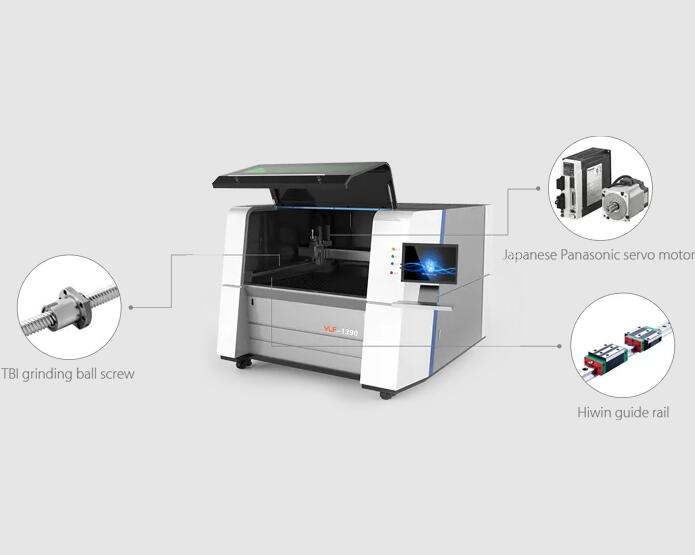In the realm of intricate craftsmanship, the art of jewelry making demands unparalleled precision and attention to detail. As technology continues to intersect with tradition, laser cutting has emerged as a revolutionary technique in the jewelry industry. This article delves into the world of laser technology, exploring the best laser for cutting jewelry and how it has transformed the way exquisite pieces are crafted.
The Quest for Precision: Fiber Lasers
When it comes to jewelry cutting, fiber lasers have emerged as the preferred choice for artisans and manufacturers seeking the pinnacle of precision. Fiber lasers offer a unique blend of attributes that make them ideally suited for the intricate and delicate work required in jewelry making. These lasers utilize fiber optics to deliver the laser beam, allowing for exceptional control and focus.
Versatility in Materials
Fiber lasers showcase remarkable versatility in cutting a variety of jewelry materials. Whether it's precious metals like gold, silver, or platinum, or intricate designs in delicate materials such as acrylic, fiber lasers excel in producing clean and accurate cuts. This adaptability is a boon for jewelry makers who deal with a diverse range of materials to create their masterpieces.

Micron-Level Precision
The defining feature of fiber lasers is their ability to achieve micron-level precision. Jewelry designs often involve intricate patterns, filigree work, and engraving on small surfaces. Fiber lasers can create incredibly fine cuts, ensuring that every detail of the design is accurately reproduced. This level of precision is unparalleled and allows jewelry makers to bring their most intricate ideas to life.
Minimal Heat Affection
One of the challenges in jewelry cutting is the potential for heat-related damage to delicate materials. Traditional cutting methods, such as sawing or milling, generate heat that can distort or discolor precious metals and stones. Fiber lasers, however, generate minimal heat, reducing the risk of such damage. This ensures that the integrity of the jewelry piece remains uncompromised throughout the cutting process.
Contactless Cutting
Fiber lasers operate in a contactless manner, meaning there is no physical interaction between the laser and the jewelry piece. This eliminates the need for clamping or fixturing, preventing potential damage to the delicate piece. The non-contact nature of fiber lasers also contributes to a cleaner and more precise cutting process, resulting in jewelry pieces with flawless edges and contours.
Time and Cost Efficiency
In addition to their precision, fiber lasers also offer time and cost efficiencies in jewelry production. The speed and accuracy of laser cutting reduce the need for extensive manual labor and post-cutting finishing. Moreover, the non-contact nature of the process reduces wear and tear on the equipment, resulting in lower maintenance costs over time.
Conclusion
In the realm of jewelry making, where each piece is a work of art and craftsmanship, the choice of laser technology can significantly impact the final outcome. Fiber laser cutters have emerged as the best laser for cutting jewelry due to their unparalleled precision, versatility, and minimal heat generation. From crafting intricate designs to engraving delicate surfaces, fiber lasers have revolutionized the jewelry industry by combining cutting-edge technology with timeless craftsmanship.
As jewelry makers continue to push the boundaries of creativity and design, fiber lasers provide them with a tool that aligns perfectly with their vision. With their ability to translate the most intricate concepts into tangible, stunning pieces, fiber lasers have truly become an indispensable asset in the world of jewelry making, ensuring that every piece of jewelry reflects the dedication, skill, and artistry of its creator.





Comments
0